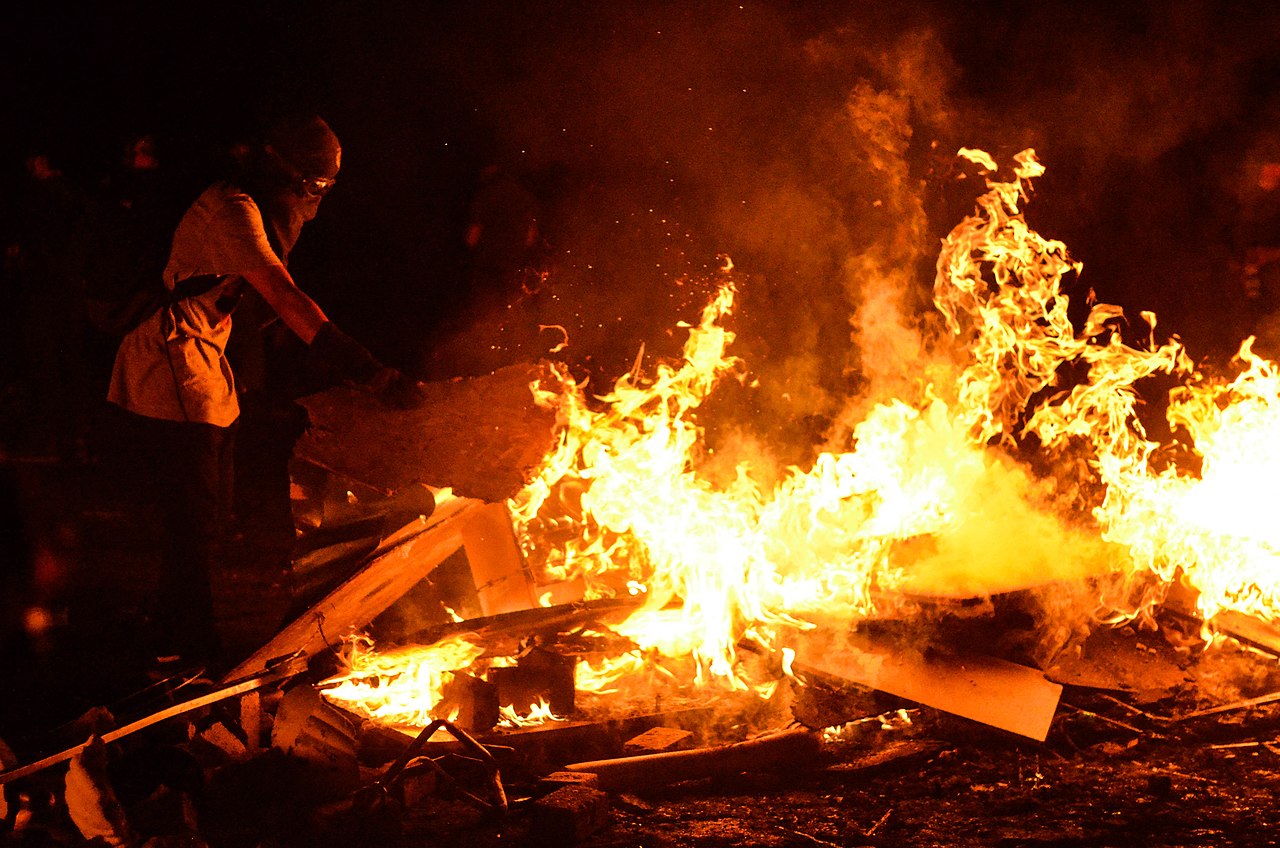TRIPOLI (Parliament Politics Magazine) – In order to express their outrage at the worsening living conditions and the protracted political impasse, protesters stormed the Libyan parliament in the eastern city of Tobruk and set portions of it on fire.
Tyres were burnt and cars were set on fire during the incident on Friday. This happened after a protester used a bulldozer to burst through the compound’s gate and others attacked the walls with construction equipment, according to local media.
Due to Friday falling on a weekend in Libya, the building remained empty.
Since an east-west split in 2014, which occurred three years after a popular uprising that deposed Muammar Gaddafi, the House of Representatives of Libya has been based in Tobruk, over 600 miles (1,000 km) east of the capital, Tripoli.
As the oil-rich nation of North Africa remains divided between competing governments fighting for power, a separate legislature, officially called the High Council of State, is situated in Tripoli.
Days of power outages have plagued Libya, which is sweltering in the summer heat. The situation has been made worse by the blockade of important oil facilities amid long-standing political disputes.
Protesters, some of whom carried the green flags of the Gaddafi government, chanted, “We want the lights to work.”
The “acts of vandalism and the burning” of the parliament’s offices were denounced.
Abdul Hamid Dbeibah, the interim prime minister of the Tripoli-based government, expressed support for the demonstrators’ grievances on Twitter.
Since months, there have been two competing governments in Libya: the one located in Tripoli and controlled by Dbeibah; and the other, which is supported by the warlord Khalifa Haftar and is led by the former interior minister Fathi Bashagha.
After the end of the most recent major cycle of violence in 2020, parliamentary and presidential elections that were initially scheduled for last December were intended to mark the culmination of a UN-led peace process.
The vote, however, was never held due to a number of contentious candidates and serious disagreements over the legality of the polls amongst the competing power centres.
On Thursday, the United Nations said that attempts to break the impasse through negotiations between the competing Libyan institutions had been unsuccessful.
Aguila Saleh, the speaker of the parliament, and Khaled al-Mishri, the head of the High Council of State, met at the UN in Geneva for three days of discussions to go over a draft constitution’s electoral structure.
The two sides are still at disagreement about who is eligible to run for president, so even though some progress was made, Stephanie Williams, the UN’s senior Libya envoy, said it was insufficient to go toward elections.
The right of people to peacefully protest should be supported and safeguarded, but rioting and acts of vandalism like the assault of the House of Representatives buildings late yesterday in Tobruk were completely unacceptable, Williams said on Saturday.
Elections seem as far away as they have always been since the parliament chose Bashagha, claiming that Dbeibah’s term had ended.
In Sirte, Gaddafi’s coastal hometown, the rival authority established itself after Bashagha’s attempt to invade Tripoli in May was unsuccessful.
There have been numerous clashes between armed factions in Tripoli, raising concerns about the possibility of another major conflict.
On Friday, demonstrators gathered in other towns, including Tripoli, where they displayed crossed-out pictures of Dbeibah and Bashagha.
According to Tarek Megerisi of the European Council on Foreign Relations, popular protests had erupted across Libya in frustration with a crumbling quality of life, the entire political elite who built it, and the UN who indulged them over delivering promised reform.
Things were escalating quickly, and Libya’s summer would be defined by the response, he wrote on Twitter.
National Oil Corporation (NOC) of Libya announced force majeure on some sites on Thursday, releasing it from contractual commitments due to events beyond its control, and reported losses from closures of over $3.5 billion (£2.9 billion).
The NOC reported that output sharply decreased and that daily exports were now between 365,000 to 409,000 barrels, down 865,000 barrels per day from the average before April.
Major oil facilities are under the authority of Haftar’s army.
Reduced gas output is a factor in Libya’s ongoing power outages. These have lasted up to 12 hours in a day.






